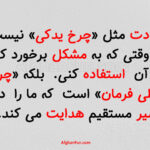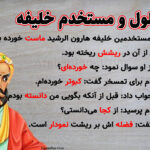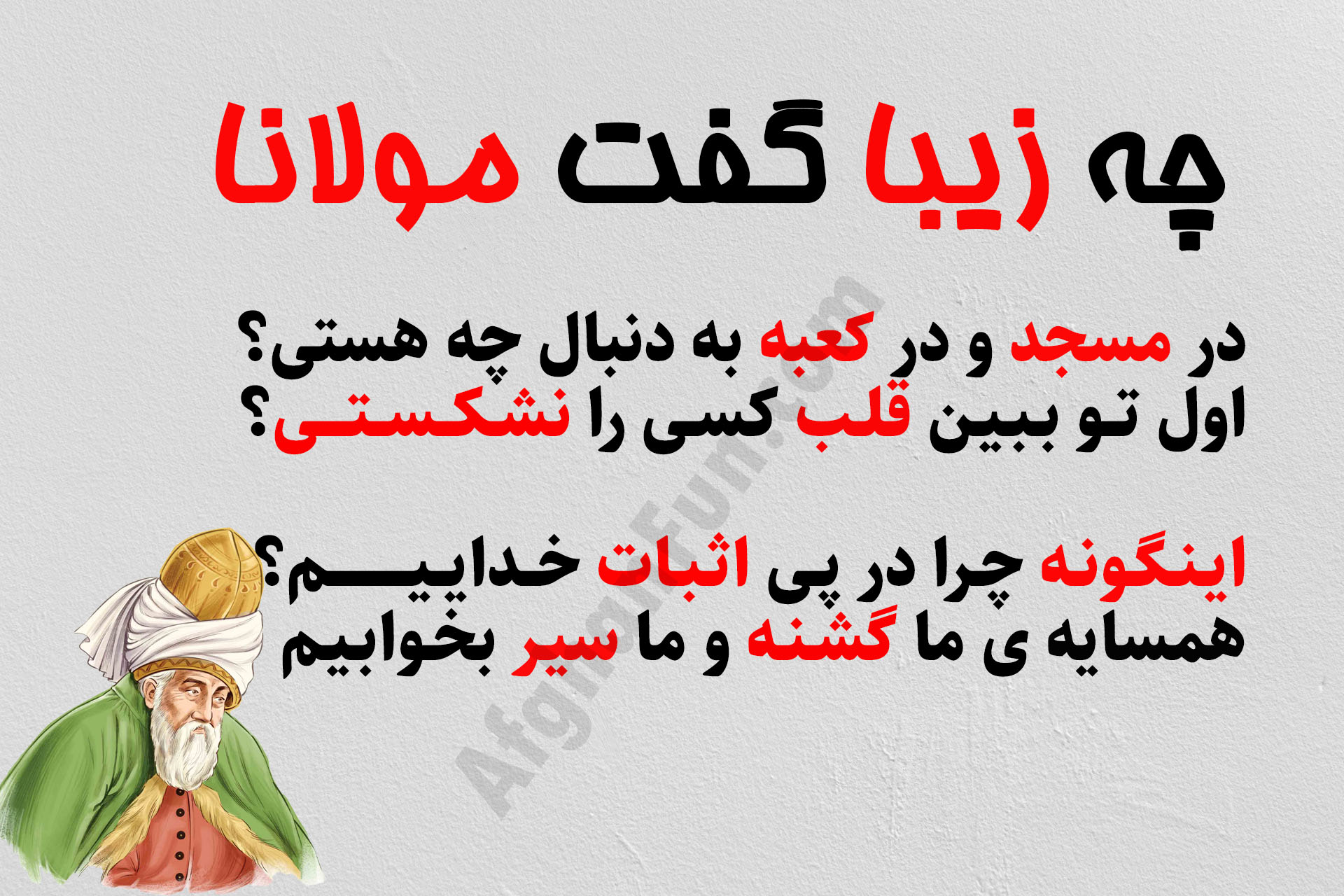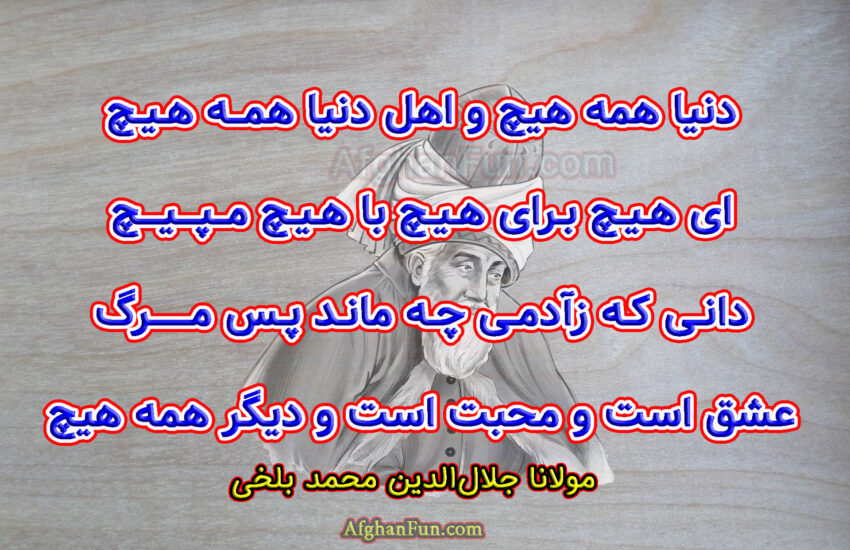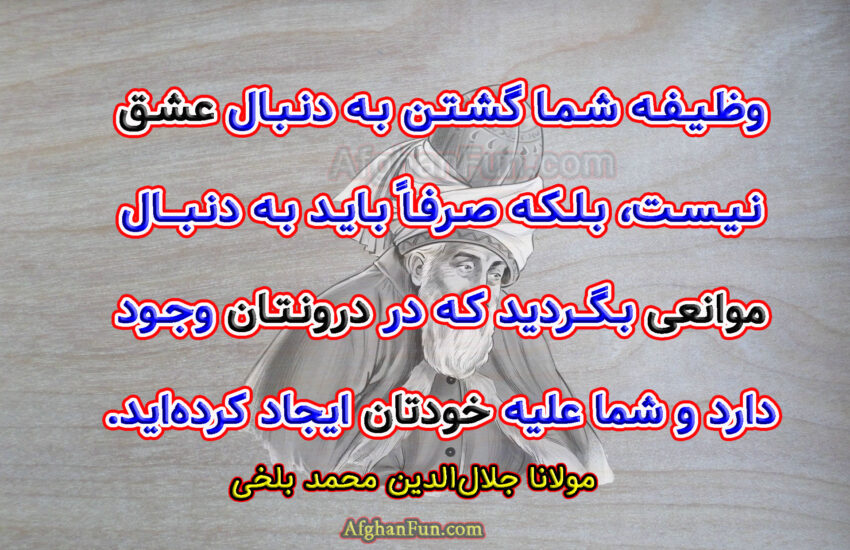در مسجد و در کعبه به دنبال چه هستی؟
اول تو ببین قلب کـــــسی را نشـکـستـی؟
اینـگـــونه چـرا در پی اثـبـات خـدایـیـــم؟
هـمـسـایـه ی مــا گـشـنه و ما سیر بخوابیم
مولانا جلال الدین محمد بلخی
Дар масҷиду дар Каъба ба дунболи чи ҳастӣ?
Аввал ту бубин қалби касеро нашикастӣ?
Ингуна чаро дар пайи исботи Худоем?
Ҳамсояи мо гушнаву мо сер бихобем?!
МАВЛОНО ҶАЛОЛУДДИН МУҲАММАДИ БАЛХӢ
Jalāl ad-Dīn Muhammad Rūmī (Persian: جلالالدین محمد رومی), also known as Jalāl ad-Dīn Muhammad Balkhī (جلالالدین محمد بلخى), Mevlânâ/Mawlānā (مولانا, “our master”), Mevlevî/Mawlawī (مولوی, “my master”), and more popularly simply as Rumi (30 September 1207 – 17 December 1273), was a 13th-century Persian poet, Hanafi faqih, Islamic scholar, Maturidi theologian, and Sufi mystic originally from Greater Khorasan (Today Afghanistan). Rumi’s influence transcends national borders and ethnic divisions: Iranians, Tajiks, Turks, Greeks, Pashtuns, other Central Asian Muslims, and the Muslims of the Indian subcontinent have greatly appreciated his spiritual legacy for the past seven centuries. His poems have been widely translated into many of the world’s languages and transposed into various formats. Rumi has been described as the “most popular poet” and the “best selling poet” in the United States.
Rumi’s works are written mostly in Persian, but occasionally he also used Turkish, Arabic, and Greek in his verse. His Masnavi (Mathnawi), composed in Konya, is considered one of the greatest poems of the Persian language. His works are widely read today in their original language across Greater Iran and the Persian-speaking world. Translations of his works are very popular, most notably in Turkey, Azerbaijan, the United States, and South Asia. His poetry has influenced not only Persian literature, but also the literary traditions of the Ottoman Turkish, Chagatai, Urdu, Bengali and Pashto languages.

